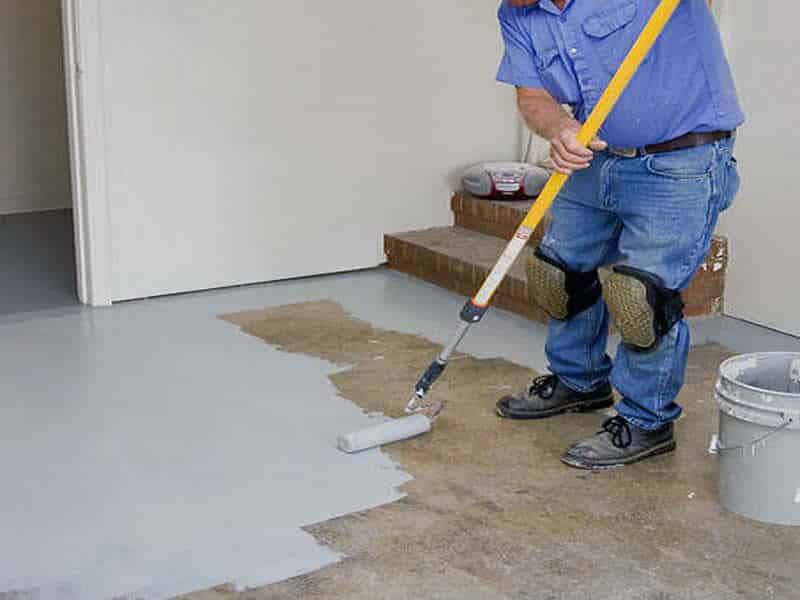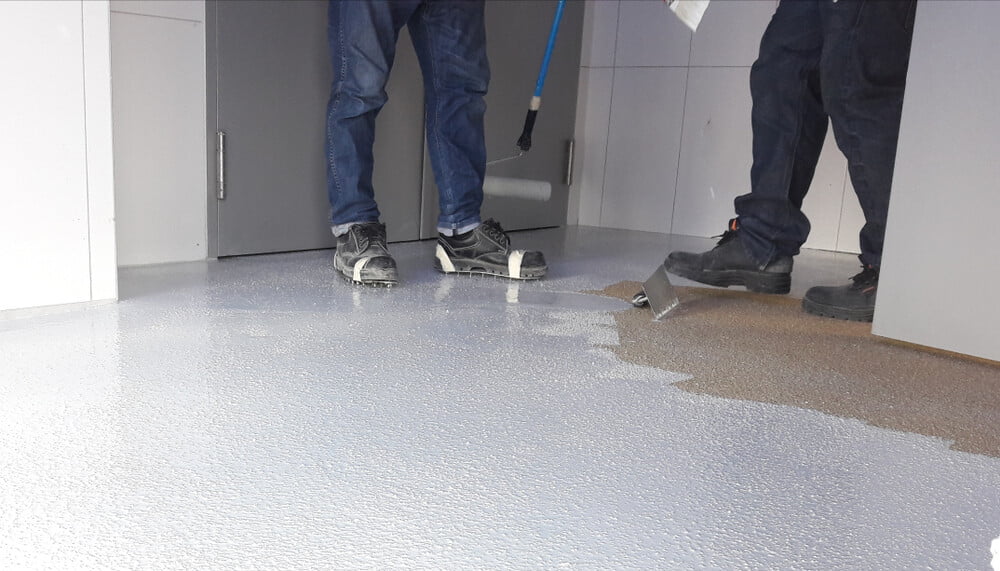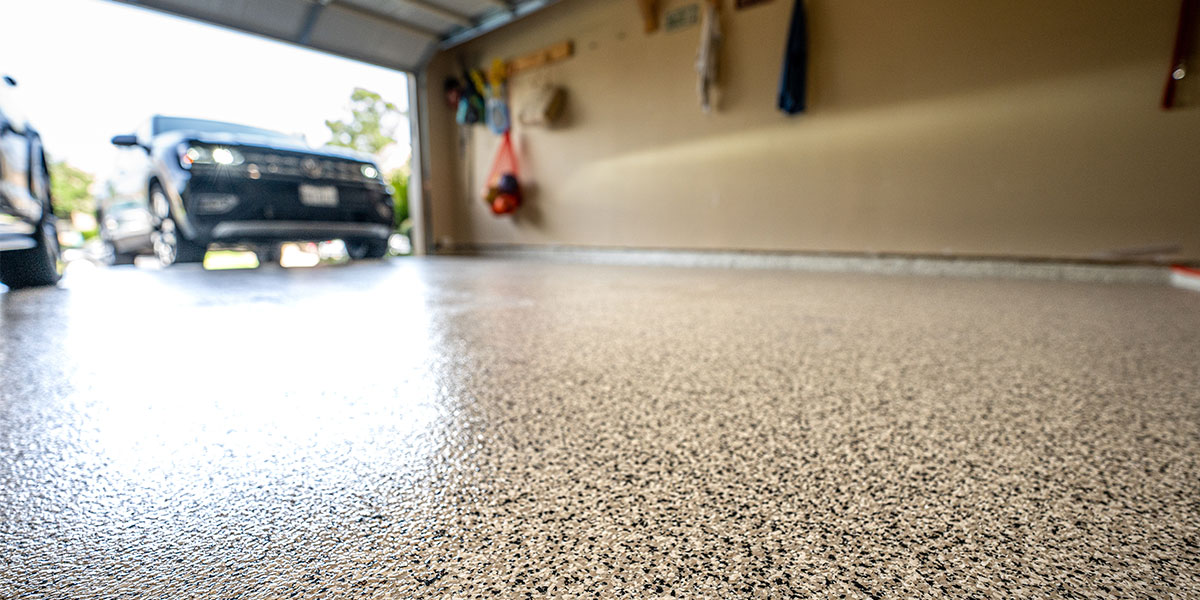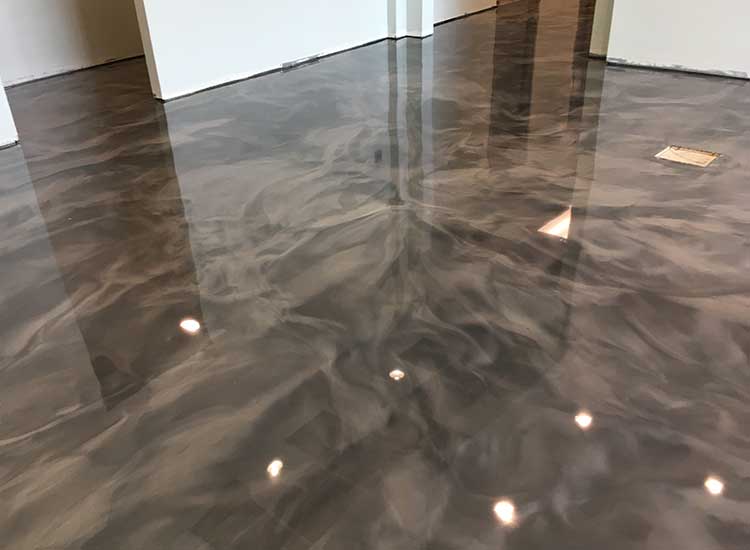The Benefits of Epoxy Flooring Waterproofing
Epoxy flooring waterproofing is becoming increasingly popular for both residential and commercial spaces. This innovative flooring solution offers a wide range of benefits that make it a preferred choice for many. Below are several advantages of epoxy flooring waterproofing and why it is worth considering for your next flooring project.
- Durability: One of the key benefits of epoxy flooring waterproofing is its exceptional durability. The epoxy coating creates a tough and resilient surface that can withstand heavy foot traffic, impacts, and abrasions. This makes it an ideal choice for high-traffic areas such as warehouses, garages, and industrial facilities.
- Moisture Resistance: Epoxy flooring waterproofing provides excellent moisture resistance, making it an ideal solution for areas prone to spills, water leaks, or high humidity. The seamless and impermeable nature of epoxy flooring prevents moisture from seeping through the floor, protecting the underlying concrete substrate from damage caused by water infiltration.
- Easy Maintenance: Maintaining epoxy flooring waterproofing is a breeze. The smooth and non-porous surface makes it easy to clean and maintain. Regular sweeping and occasional mopping are usually sufficient to keep the floor in pristine condition. The low maintenance requirements of epoxy flooring make it a cost-effective choice in the long run.
- Chemical Resistance: Epoxy flooring is highly resistant to a wide range of chemicals, including oils, solvents, acids, and alkalis. This makes it an ideal flooring solution for areas such as laboratories, manufacturing facilities, and commercial kitchens where spills and chemical exposure are common. The chemical resistance of epoxy flooring ensures the floor remains intact and unaffected by the corrosive nature of these substances.
- Aesthetic Appeal: In addition to its functional advantages, epoxy flooring waterproofing also offers a wide range of design options. With various colors, patterns, and finishes available, epoxy flooring can be customized to suit any aesthetic preference. Whether you prefer a sleek and modern look or a more decorative and vibrant design, epoxy flooring can transform any space into a visually appealing environment.
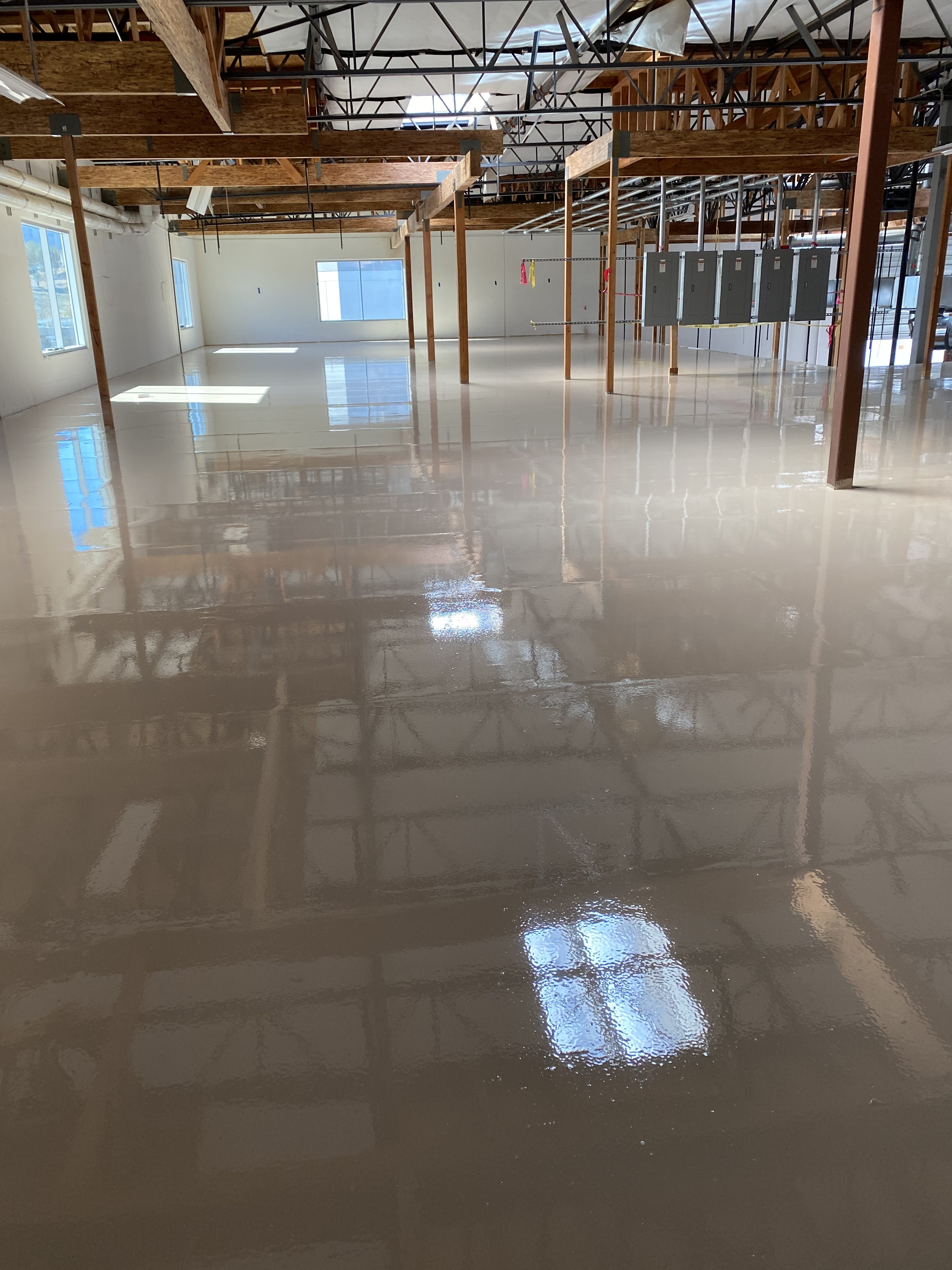
How Epoxy Flooring Waterproofing Works
Epoxy flooring waterproofing is a unique system that provides a protective barrier against water and moisture. Understanding how it works can help you appreciate its effectiveness and make informed decisions when considering this flooring solution. Let’s discuss the process of how epoxy flooring waterproofing works.
- Surface Preparation: Before applying the epoxy coating, proper surface preparation is crucial. The concrete substrate needs to be thoroughly cleaned and any existing coatings or sealers must be removed. This ensures optimal adhesion of the epoxy coating and enhances its waterproofing properties. Surface preparation may involve techniques such as shot blasting, grinding, or acid etching.
- Epoxy Application: Once the surface is prepared, the epoxy coating is applied. Epoxy is a two-component material that consists of a resin and a hardener. These components are mixed together in a specific ratio and then applied to the prepared surface using rollers or squeegees. The epoxy coating forms a seamless and impermeable layer that bonds tightly to the concrete substrate.
- Curing and Drying: After the epoxy coating is applied, it undergoes a curing process. This process allows the epoxy to harden and form a durable and protective layer. The curing time can vary depending on factors such as temperature and humidity. It is important to follow the manufacturer’s instructions regarding the curing time and conditions to ensure optimal performance.
- Topcoat Application (Optional): In some cases, a topcoat may be applied to enhance the performance and appearance of the epoxy flooring waterproofing system. The topcoat can provide additional protection against UV rays, abrasion, and chemical exposure. It can also add a glossy or matte finish to the floor, depending on the desired aesthetic.
- Maintenance and Longevity: To maintain the waterproofing properties of the epoxy flooring, regular inspections and maintenance are important. Periodically checking for any signs of damage, such as cracks or areas where the coating has worn off, is crucial. Any necessary repairs should be done promptly to prevent water infiltration. Additionally, following proper cleaning and maintenance practices will help extend the longevity of the epoxy flooring waterproofing system.
Choosing the Right Epoxy Flooring Waterproofing System
Choosing the right epoxy flooring waterproofing system is crucial to ensure optimal performance and longevity. With various options available in the market, it’s important to consider factors such as the specific needs of your space, budget, and desired aesthetics. We will see key considerations when selecting an epoxy flooring waterproofing system.
Type of Epoxy: There are different types of epoxy flooring systems available, each with its own characteristics and benefits. For waterproofing purposes, it is essential to choose an epoxy system specifically formulated for moisture resistance. Water-based epoxy coatings are commonly used for this purpose, as they offer excellent waterproofing properties and are environmentally friendly. Solvent-based epoxy coatings may also be suitable for certain applications but require proper ventilation during installation.
Thickness and Build: The thickness of the epoxy flooring system plays a crucial role in its waterproofing capabilities. Thicker coatings provide a more robust barrier against water and moisture infiltration. The number of layers applied also contributes to the build of the system. Multiple layers can enhance the waterproofing properties and overall durability of the floor. It is important to consult with a professional to determine the appropriate thickness and build for your specific needs.
Slip Resistance: Considering slip resistance is important, especially in areas prone to water or liquid spills. Epoxy flooring systems can be customized with additives such as silica or aggregates to increase traction and reduce the risk of slips and falls. This is particularly important in commercial or industrial settings where safety is a priority.
Aesthetic Options: While functionality is crucial, aesthetics also play a role in choosing the right epoxy flooring waterproofing system. Epoxy coatings come in a variety of colors, patterns, and finishes, allowing you to customize the look of your space. Consider the overall design and desired aesthetic appeal when selecting the right system. It is important to choose a system that not only provides waterproofing but also enhances the visual appeal of the space.
Professional Installation: Proper installation is key to the performance and longevity of the epoxy flooring waterproofing system. It is recommended to hire professional installers who have experience with epoxy flooring systems. They will ensure proper surface preparation, application techniques, and curing processes, resulting in a high-quality and effective waterproofing system.
Budget Considerations: Another important factor to consider when choosing an epoxy flooring waterproofing system is your budget. The cost of epoxy flooring can vary depending on factors such as the size of the area, the complexity of the installation, and the quality of the materials used. It’s essential to determine your budget and work with a reputable supplier or contractor who can provide options that align with your financial considerations while still meeting your waterproofing needs.
Maintenance Requirements: Different epoxy flooring systems may have varying maintenance requirements. Consider the level of maintenance you are willing to commit to when choosing a system. Some epoxy coatings may require periodic reapplication or touch-ups, while others may offer long-lasting durability with minimal maintenance. Understanding the maintenance needs of the system will help you make an informed decision and ensure that you can properly care for your epoxy flooring over time.
Installation and Maintenance
Proper installation and maintenance are essential for the longevity and effectiveness of epoxy flooring waterproofing systems. In this article, we will explore the key considerations and best practices for the installation and maintenance of epoxy flooring waterproofing.
Installation Process
The installation of epoxy flooring waterproofing involves several important steps to ensure a successful outcome. Here’s a breakdown of the installation process:
- Surface Preparation: The concrete substrate must be thoroughly cleaned and prepared before the epoxy coating is applied. This includes removing any existing coatings, sealers, or contaminants. Proper surface preparation ensures optimal adhesion and performance of the epoxy flooring system.
- Primer Application: In some cases, a primer may be applied before the epoxy coating. The primer helps to enhance adhesion and create a strong bond between the concrete substrate and the epoxy layer.
- Mixing and Application: The epoxy coating consists of a resin and a hardener that must be mixed together in the correct ratio. Following the manufacturer’s instructions, the mixture is then applied to the prepared surface using rollers or squeegees. It’s important to work efficiently to ensure a seamless and uniform application.
- Curing and Drying: After the epoxy coating is applied, it undergoes a curing process. This can take anywhere from a few hours to several days, depending on the specific product and environmental conditions. During this time, it’s crucial to avoid foot traffic or placing heavy objects on the floor to allow the epoxy to properly cure and harden.
Maintenance Practices
Proper maintenance is key to the longevity and performance of epoxy flooring waterproofing systems. Here are some important maintenance practices to follow:
- Regular Cleaning: Sweep or vacuum the floor regularly to remove dirt, dust, and debris. Use a mild detergent and warm water to mop the floor periodically. Avoid using harsh chemicals or abrasive cleaners that can damage the epoxy coating.
- Prompt Spill Cleanup: Clean up spills immediately to prevent staining or damage to the epoxy coating. Use absorbent materials such as paper towels or cloths to blot and remove the spilled substance. Avoid using abrasive materials that can scratch the surface.
- Avoid Heavy Impact: While epoxy flooring is highly durable, it’s best to avoid dragging heavy objects or dropping heavy items on the floor. This can cause dents or scratches that may compromise the waterproofing capabilities of the system.
- Periodic Inspection: Regularly inspect the epoxy flooring for any signs of damage, such as cracks, chips, or areas where the coating has worn off. Address any issues promptly to prevent water infiltration and further damage.
- Recoating or Repair: Over time, the epoxy coating may show signs of wear or damage. Depending on the severity, you may need to consider recoating or repairing the floor. Consult with a professional to determine the best course of action based on the condition of the flooring.
China Waterproof Metallic Epoxy Flooring for Concrete and Cement
Understanding the Pros and Cons of Epoxy Floors
The Benefits of an Epoxy Flooring in your Garage WICR
Waterproof Solid Color Epoxy Floor Coating System
Gallery – McAleer Epoxy Floors
Related Posts:


